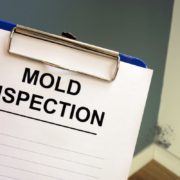Natural Disaster Evacuation and Homeowners Insurance
Wildfires, hurricanes, tornados, floods, heatwaves — natural, weather-related disasters happen year-round and countrywide. In 2013, extreme weather caused about $8.8 billion in property damage, 446 deaths and 2,766 injuries and illnesses. In many instances, and more frequently than you might realize, these events include mandatory evacuations of neighborhoods or entire communities. Your best response is to have the proper homeowners insurance or renters insurance coverage to protect your possessions and a disaster preparedness plan to protect your life. That plan should include knowing when and how to evacuate when the situation becomes too dangerous to stay in place.
Natural Disaster Evacuation Basics
The nature of the pending weather-related disaster will dictate how much time you have to evacuate. You could have days, hours or just a few minutes to leave or seek shelter. That’s why it’s so important to have a plan in place. Ready.gov recommends these basic preparedness steps:
- Plan where family members will meet if you’re apart when the call to evacuate comes and make sure everyone knows the evacuation routes and alternate routes to those destinations.
- Always keep at least a half tank of gas in your car and fill up early when potential bad weather is broadcast. Last-minute lines will delay your evacuation and gas stations may run out of fuel or lose power.
- If you don’t have a car, have a back-up transportation plan.
- Buy a weather radio with an automatic warning function and a supply of fresh batteries.
- Have an emergency supply kit ready to go. It should include enough water and spoil-proof food for every family member and pet for at least three days, a first-aid kit, special items for infants, elderly or disabled family members, clothing, and copies of important documents. Keep it in a watertight container near the car and replenish/replace supplies periodically.
- Try to have cash on hand; ATMs may not work in an emergency situation.
- Know what you will do with your family pets in event of an evacuation. Shelters may not be able to accommodate anything except bona fide service animals.
When bad weather is forecast:
- Turn on your weather radio or TV.
- Contact family members and review your emergency plans.
- Dress in protective clothing and sturdy shoes so you’re ready to leave.
- Check with neighbors to make sure they’re aware of the situation. In emergency situations, the elderly, very young, physically or mentally impaired and people who don’t speak English are most at risk.
If the call comes to evacuate, do not ignore it. Get ready and get out. Staying in place because you think you won’t be affected or because you think you can “ride it out” risks the lives of first-responders and wastes valuable emergency resources that could be better used not rescuing the foolhardy. The Centers for Disease Control (CDC) recommends these steps:
- Take only what you really need with you, including your survival kit, cell phone, meds, ID, cash and a credit card.
- If you have time, turn off the gas, water and electric supplies to your home and unplug small appliances. Unless there is danger of flooding, leave your refrigerator and freezer plugged in.
- Follow the designated emergency evacuation routes. Do not take a short cut or attempt to drive through flooded areas.
If you can’t get out, experts recommend that you stay inside away from windows (note that opening windows won’t protect your home from damage in heavy winds). Turn off gas, water and electricity and unplug all appliances. Seek appropriate shelter depending on the nature of the weather-related emergency. If it’s a tornado or hurricane, go to a room with no windows, inside a closet, an interior hallway, under a sturdy piece of furniture or into a bathtub. If it’s a flood, climb to the highest point in your home, even if it’s just on top of a piece of furniture. Keep your weather radio and a cellphone with you.
Is Natural Disaster Covered by Homeowners Insurance?
Once danger has passed, contact your insurance company as soon as possible to get any needed claims processes started. In a major disaster, such as Hurricane Sandy, insurers will handle the most severely damaged homes first. In addition, most homeowners and renters policies include a loss-of-use benefit that will cover living expenses such as temporary lodging and food while your home is uninhabitable. Also be aware that in the case of hurricanes and flooding, insurance companies may make a distinction between water damage caused by the storm and water damage caused by post-storm flooding. Generally speaking, flood-related damage requires a separate flood insurance policy. Standard homeowner and renter policies do not cover floods. You can shop for competitive quotes for homeowners insurance, renters insurance and flood insurance here.

 EINSURANCE
EINSURANCE EINSURANCE
EINSURANCE
 EINSURANCE
EINSURANCE